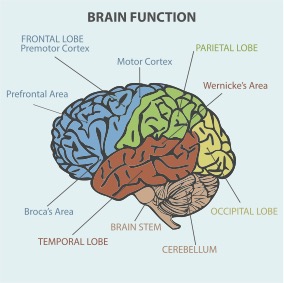
We are proud to present this guest post about family resilience by Deborah Bray Haddock, MA, M.Ed., of Reah Ministry.
Resilience is sometimes defined as the strength gained from challenging events, and is often described as bouncing forward, as opposed to bouncing back. When we first learned about COVID-19, over a year ago, I doubt that anyone expected it to last this long or to require us to make so many changes in our lives. Yet, here we are. Take a moment to think about the changes you and your family members have had to make in order to stay as safe as possible. Staying home and not being able to interact with friends and extended family may be the most obvious change in behavior, as well as being the most isolating. Some people got sick and others died. If a family member was hospitalized there was the added pain of not being able to be at your loved ones side. Maybe you lost a job and suffered a financial burden. If not, you may have started working from home, which also caused many people to feel isolated. On top of this, schools started shutting down and parents had to quickly assume the role of teacher.
Alfred Adler, a medical doctor, psychotherapist, and founder of the school of individual psychology, viewed resilience as the capacity to overcome adversity. He taught that we need courage to face adversity, as well as self-encouragement, encouragement from others, and the courage to be imperfect. In other words, our job is to do the best we can when facing difficulties and to encourage others to do the same. Adler taught that we build resilience through a sense of community that may include family, mental health professionals, teachers, and various groups that we belong to that help to create a sense of belonging. When faced with adversity, we can begin to feel more competent by taking our focus off of ourselves and directing it toward helping others.
It can be helpful to understand why children sometimes become reactive when they are experiencing stress. Learning about the brain and helping children to understand it, as well, can help to create some space between the child and difficult emotions. Think of the brainstem and limbic system as the more primitive part of the brain that controls our stress response (fight, flight, or freeze). When the limbic system senses dangers it reacts. It is all about survival. There is one problem, though. Reacting without thinking, especially when there’s no real danger, can lead to overwhelming emotions and poor decisions. Counter that with the prefrontal cortex, the part of our brain that we associate with logical thinking and self-control that allows us to pause before reacting. The external situation may be the same, but the ways in which we respond can be different. Children can learn this as easily as adults if they are taught how to respond and have access to positive role models.
Research shows that when children learn and practice self-regulation skills, they are forming pathways in their brains that increase their ability to mange stress in the future. (Yoo, 2018)
Parents and Modeling Family Resilience
You might be wondering how to be a source of resilience for your children in the aftermath of Covid-19. In terms of returning to school and other activities, we know that many children struggled with motivation and schoolwork because they were not able to interact with teachers and other students in person. Children with learning or behavioral challenges had even greater challenges. As a parent, you have also had challenges. If you normally went to a place of employment, you might have found yourself working from home and trying to balance work with your new role as a homeschool teacher for your children. You probably found yourself feeling more stressed and more emotional. Yet, as a parent, it is also your job to be a positive role model for your children. How is it possible to do that when you are dealing with managing so much on your own?
The first step is to practice radical acceptance. (Linehan, 2013) When life takes us down a path we don’t want to travel, most of us go down the road kicking and screaming. There is a famous line in Hamlet where Shakespeare writes, “The lady doth protest too much, methinks.” One of the reasons we protest too much is because we are in denial, even when we are looking squarely in the face of whatever it is we are attempting to deny. Radical acceptance is not simply about accepting the reality of our situation, but about embracing it. That is when real change can occur. Alan Cohen, businessman and author, reminds us, “You empower what you fight. You withdraw power from what you release.” Accept the reality of your situation. Then you can begin to manage the problem.
Going forward, you can be more intentional about taking care of yourself so that you are able to model resilience. I think of the information given to us every time we board a plane. Before the flight, one of things that we are told is to put on our own oxygen masks, if needed, before helping anyone else. Instinctually, most parents would reach out to help their children first, but that can put both parents and children at risk. The same is true for us anytime life becomes difficult to manage. A loving mother wants to help her child. It’s important, though, to take care of yourself first unless there is an immediate danger to your child. Parents can learn to take care of themselves by calming and soothing their own emotions before intervening with their children.
Adults generally have many tools for regulating their own emotions. The easiest thing to do is to take a few minutes to be alone to simply breathe and gather your thoughts. Think about what you want to offer your child in terms of support. You can also use this time to read, write your thoughts in a journal, or call a friend in order to feel calmer and more able to manage your own responses. Of course, there are other tools to access, as well, such as meeting online with a therapist or parenting coach. These things help you to feel calmer and more competent in dealing with your own stress and the stressors of the family. Then, you are better able to teach your children how to be more resilient.
According to Cynthia Yoo, BA, MA, adults need to practice regulating their own emotions if they hope to be of help to the children in their lives. The ability to manage thoughts, emotions, and behavior when feeling overwhelmed is key to managing stress effectively and creating a sense of well-being for yourself and others. It is also important to keep the end goal in mind. For the purposes of this article, the goal is to help your children return to school and other activities, despite any anxiety they might be feeling. As the adult, it is important to stay calm and model behavior that is supportive and encouraging. Then, you are able to help your children replenish their own emotional resources and make good decisions, even in difficult situations.
Teaching Resilience to Children
In The Science of Resilience: Why Some Children can Thrive Despite Adversity, Bari Walsh writes that the key to developing resilience in children is for a child to have a strong relationship with at least one adult who is supportive and encouraging. Resilience is a combination of both internal qualities and external experiences. But, there are common characteristics in resilient children. Adults can teach children a sense of mastery over their circumstances, self-regulation skills, which is simply learning to manage emotions, and help them to find support through religious faith or cultural traditions. These three characteristics are a part of a positive sense of community and community is everything when developing resilience.
According to Ann Masten, Ph.D., professor and researcher at the University of Minnesota, humans are equipped to be resilient, but we still need to develop and nurture those skills. Parents can facilitate this by allowing children to solve their own problems whenever possible. As parents, we can ask the right questions to help our children problem-solve and offer support and encouragement as they make decisions and good choices. Parents can also provide children with realistic challenges that can help them to experience success. That is just one reason why age-appropriate chores are important for children. Finally, keep in mind that children don’t need to be listening to newscasts about the pandemic or being included in adult conversations that might cause them to worry unnecessarily.
Children also respond well to structure and consistency. Parents can reduce unnecessary demands on their children, while still encouraging children to tend to their responsibilities. You might want to practice resilience skills with your children and teach them to self-monitor and rate their emotions. Increased awareness helps children to make better decisions. Help them create a toolbox full of activities for managing difficult thoughts, emotions, and situations. Offer immediate and specific feedback that focuses on positive behavior. Instead of punishing children for not reacting well to adversity, teach them how to do things differently. Self-regulation leads to greater success.
Summary
Life can be difficult, but humans have an innate ability to move toward resilience even when experiencing extreme difficulty. When adults develop their own resilience they are able to model that behavior for their children. The goal is to learn tools for developing resilience and then practicing together as a family. Think about the types of situations your child might be facing when returning to school and other activities. Prepare your child by talking about some of those things, but start by asking your child what they are thinking and feeling about going back to school. Help them to identify positive things, as well as possible challenges. Then talk about a few possible scenarios and brainstorm healthy ways of handling the challenges. When we react to stress with stability and calmness it not only increases our own sense of well-being, but affects those around us, as well.
Charter Moms Chats
Hear Deborah Haddock share advice about family resilience with Inga Cotton on Charter Moms Chats on Thursday, July 1, 2021 at 4:00 PM Central on Facebook and YouTube.
Deborah Haddock received a Master’s in Education from Fort Hays State University, a Master’s in Counseling Psychology from Adler Graduate School of Psychology, Wellness Coaching Certification through the Mayo Clinic School of Health Sciences, and Spiritual Direction Certification through Perkins School of Theology at Southern Methodist University.
Read More About Family Resilience
- Calm app, available for iPhone and Android
- “How to Support Self-Regulation Difficulties in Children,” Cynthia Yoo, Foothills Academy
- “The Role of Resilience in the Face of COVID-19 with Ann Masten, PhD,” Ann Masten, iHeart, 2020
- “The Science of Resilience,” Bari Walsh, Harvard Graduate School of Education, Mach 23, 2015
- “Summer Slide, Covid Slide, and Glitter Slide,” Erica Martinez, San Antonio Charter Moms, June 3, 2021
- “Family Self-Care Plan,” Erica Martinez, San Antonio Charter Moms, March 19, 2021
- “Mindful Parenting: Practicing Peacefulness in Your Home,” Deborah Haddock, San Antonio Charter Moms, September 2, 2020
- “Embracing Emotional Learning During a Pandemic,” Kristen Henry, San Antonio Charter Moms, June 17, 2020
- “No, Really, How Do You Feel? Helping Children and Teens Understand and Regulate Their Emotions,” Kristen Henry, San Antonio Charter Moms, June 3, 2020

